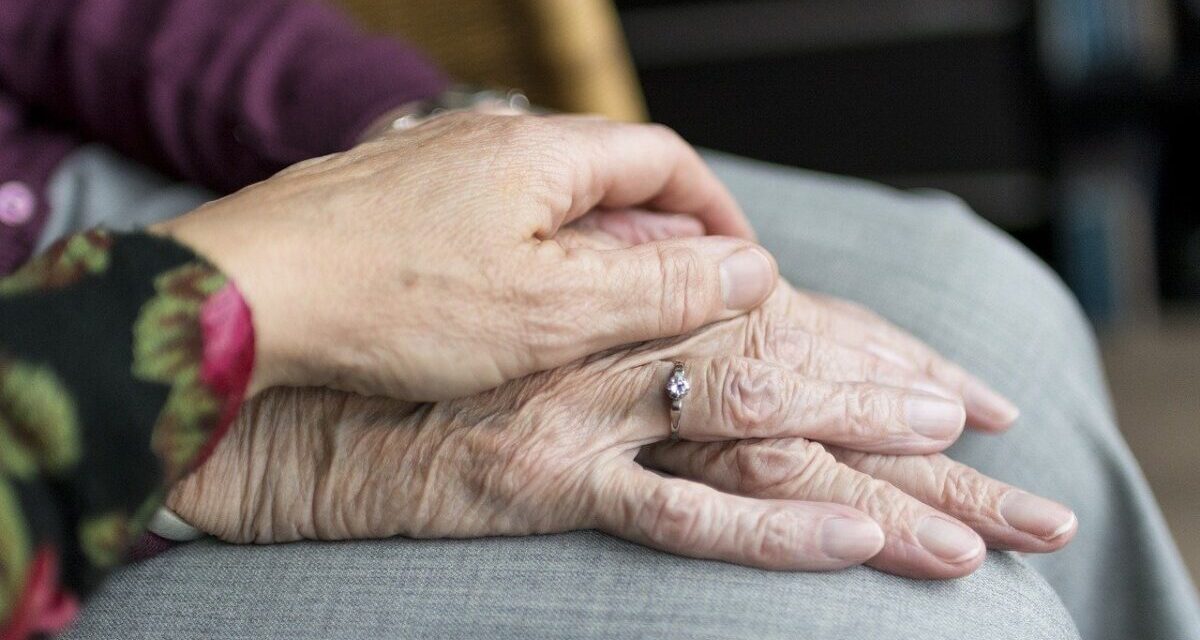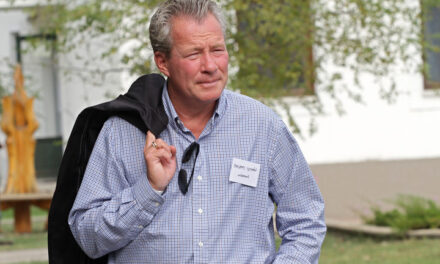Until my daughter said, "Mom, you want to get your old life back, but it's impossible", I didn't know what was wrong with me, I thought it was due to grief, and I had to die in it, says the 78-year-old Júlia. who lost her husband two years ago after a sudden illness.
The fifty-two years spent starting a family, building, and working together, followed by the tragic sudden loss of a partner, brought marked changes not only in the life of the wife, but also in the life of the family. The story of Julia and her environment vividly sheds light on the differences - just as no two people are the same, no two life paths are the same - but also on the common points, on the fact that the crisis of land loss in old age affects the lives of all of us at some point and in some way. The solution is never easy, but it is not impossible either.
What do the data say?
It is a fact that the proportion of people aged 65 and over in Hungary has increased almost two and a half times in the past six and a half decades: while in 1949 it was 7.5 percent of the total population, by 2014 it was already 17.5 percent. Nowadays, the aging society has become a burning problem, the thinning of a certain age group, however, this fact is overshadowed by the fact that classic, age-based demographic indicators have only limited information in describing the aging process. According to research that prioritizes the improvement of age and health, aging does not pose such a burden on societies in the event that higher life expectancy is characterized by decreasing mortality, reduced disability at work, and increasing cognitive abilities.
In this respect, the aging process does not primarily show how much the population ages on average in terms of absolute ages, but rather that older people are healthier and live longer, and their life expectancy is higher than that of previous generations in the traditional sense; these researches emphasize the productivity potential of older people. The literature focusing on economic dependence usually draws attention to the burden that the change in the age structure poses to society in terms of income generation, but an important role in these calculations is that the economic life cycle is not determined by fixed age limits, but rather by income generation and level of consumption. The results show that the burden due to aging is increasing, but the change is by no means as marked as the demographic indicators predict.
It is difficult to transplant an old tree
Behind the numbers, however, there are always individual destinies studded with successes and/or failures. It is strange that, while according to the international literature, men are more affected by the death of a partner, according to Hungarian data, it is clearly women, and Júlia's case is perhaps one of the classic examples of this. "My husband and I worked together until his death, he was a well-known accountant in the small town where we lived, with an extensive client base; at the age of eighty, even on his deathbed, he was worried about who he would hand over his pending cases to," he recalls.
"I lost my partner and my colleague at the same time, so I fell from 24-hour busyness to 24-hour loneliness. It was terrible, sometimes I thought I was going to suffocate."
When asked how he got through these two years, he answered with a radical change in lifestyle, but the family quarrels only made the already difficult situation more difficult. "I have two grown-up daughters, the older one lived next door with her husband, yet they didn't help me in any way, and the other one commuted 150 kilometers away for half a year, until I decided to liquidate everything and move to her in a foreign city." We also asked Júlia's younger daughter, how did she experience this period? "My mother and I have had a very close emotional relationship since I was a child, so I felt it was my duty to help her after my father's death, if she needed it. The weekly commuting - we lived here and there together - was very exhausting, it would have been easier to take on the support together with my sister, but unfortunately she only felt that the income from the inheritance belonged to her, not the tasks and the responsibility of the situation."
A good decision has not yet been made in haste
Both experienced the change, the changed roles and the family's attacks with difficulty, and the tension was only increased by the coronavirus that arrived in the spring; after a year and a half of living together, Júlia decided to move back to her hometown to live with her other daughter. "I don't know what got into me, even though my husband and I never had an extensive circle of friends, we lived apart from each other, yet the remaining, more distant relatives kept insisting that I go back, my older daughter also insisted, promised grass and wood, and I I started to feel that I had to go back, because I was born there, I lived there for 76 years."
The events then took a turbulent turn, as Júlia only informed her younger daughter of her decision the night before the move. Even today, he cannot give a precise answer to the question of why he acted in this way. "I couldn't spit or swallow, I was so shocked. I guessed that my brother had a hand in the matter, but since they didn't even visit me, I never dreamed that my mother would negotiate with them behind my back, on the phone, and wouldn't even discuss her problems with me, moreover, she did all this as a cured cancer patient, in the midst of the virus's upsurge, when we barely knew anything about this disease. Everything I thought and believed about my relationship with my mother fell apart in an instant," she recalls.
Júlia spent three months with her other child, after which - now managing the administration herself - she permanently moved back in with her younger daughter.
"I don't even know, I was in a kind of narrowed state of consciousness at the time, and it didn't even occur to me that they took me to the bank the very next day and put a death provision on my account, giving themselves as the beneficiary.
I was like a robot, I signed everything they said. They then took me to a lawyer to sue my younger daughter, they demanded the mother's share from me, which is more than tasteless, as it is only formed after my death. Everything was discussed, except what would happen to me, because it was obvious that I could not stay with them. Then I visited one of the local old people's homes, which was said to be good, but my grandmother just kept her mouth shut because she felt sorry for the money, which is mine anyway, my own money. They wanted to push me into subletting, alone, and keep my money. Finally, I told them that I can't stand it, I'm going back, because the fights with my younger daughter - because of pure nonsense, like I don't wash the dishes and why I forget things in the fridge - were dwarfed by them. They threatened me with death, and that was the last straw."
Don't judge so you don't judge!
According to experts, character traits become stronger in old age, and if we choose to move in together, it can help a lot if we take into account whether the parent likes to control his environment or is more of an adaptable type. You should definitely pay attention to what counterarguments he has to this, and of course infrastructural conditions are also necessary for generational coexistence: a spacious, divided apartment or house, which will be the scene of coexistence. In the case of the Júliás, all this was a given, as was the financial background, but her two sisters-in-law followed a completely different life path, despite the fact that they are all approaching eighty, all are healthy, and they lived out their lives in the same small rural town.
Magda was widowed at a relatively young age, at the age of 60, her husband committed suicide, but her adult children had already flown out by then, so she was left alone in a 150 square meter farmhouse where she was born. He can't even support himself with the widow's pension supplement, but he doesn't want to hear about moving either; neither to one of his foster children, nor to a nursing home. "Magda easily turns her head and criticizes, she never had to worry about money, because while my brother was alive, she and her children took care of him afterwards. His pension is 80,000, and the children renovated his house with tens of millions so that he wouldn't fall on it and could stay there if he was so stubbornly attached to it. Not to mention that from time to time he breaks down and says that the dog knocked him over again, but I'm begging you, I feed two big dogs at my daughter's place and I never fall over! So that puppy is synonymous with the fact that he drank more than he should have again," says Júlia.
Éva, the other sister-in-law, is the breadwinner despite her 77 years of age. She lives with her husband, who has been struggling with alcohol for decades, and her middle-aged son, who lives with prostheses on both legs as a result of an accident, but now she too is faced with a choice: her husband suffered a femoral neck fracture, so the family must decide what to do next, taking into account the uncle's intentions, who at the moment he doesn't want to move or talk, not even to his immediate family members. "I think what keeps Éva alive is that she can take care of her son, who otherwise wouldn't need her despite the artificial leg, it's the only way she's comfortable. They even installed a mommy bell in his room, which he uses to alert his mother when she needs something, because it's easier than getting out of bed. But they shaped it that way, it's their job," Júlia thinks about the background of her other sister-in-law.
Home to home?
In Hungary, the life expectancy at birth for women in 2014 was 79.4 years, for men 72.3. Loneliness can be significant in the lives of elderly people left alone - mostly women, i.e. the most negative factor affecting subjective well-being is the loss of a spouse, which has a stronger effect than poor financial conditions and the deterioration of one's own health. In 2011, 2.7 percent of people over the age of 60, or 63 thousand people, lived in some kind of institution. The largest proportion of boarders are unmarried or unmarried, followed by widows and divorcees, and the smallest proportion are married. In the case of the Júlias, the possibility of moving to a nursing home also arose, but for now they are waiting, for several reasons.
"We talked a lot about it, we also looked at a private institution in the Budapest area, we both liked it, it's true, there are close to ten million visitors, but mom would have her own apartment, essentially a hotel in a park with ancient trees, 15 minutes from me, with a swimming pool, five meals a day with a choice of menu, library, medical with care and many extra services. Then, after a long introspection and thinking, we decided to wait, as mom is fortunately completely healthy both mentally and physically, her real problem is loneliness, which even the most excellent institution will not solve", says Júlia's daughter, the literature, as well as the institution's managers and employees and the people who live there share his opinion.
In old age, in-depth human relationships are no longer, or only very rarely, established, and the residents of nursing homes continue to have family - if they exist - as their primary and most intimate bond. But it is also an accepted fact that those who are forced to move into a home, no matter how great the institution, will not feel comfortable there, so it is optimal if the need is expressed by the elderly person himself, and his family - if any - supports this.
Another aspect that often arises in the decision is the cost implication, which consists of two parts: the monthly fee is usually 80 percent of the pension (or a predetermined amount), and the "drop-in", which varies depending on the quality and maintenance of the institution; from a few hundred thousand to millions. The latter is sometimes noted by families, but also by politics and the media as a deterrent example, and is labeled as priceless.
In reality, however, most elderly people own real estate, and from its sale, they can cover the one-time cost of the acquisition. Of course, it is also a legitimate argument if the family has other plans for the elderly parent's property, either because of getting the grandchild into an apartment or due to other needs.
in this case, however, the exact wording does not sound like "we can't pay", but "we don't want to".
"Fortunately, there would be no financial obstacles to the home, but as my daughter said, I can't get my husband and my old life back even there. And it took me two years to accept that. Of course, living together is difficult, even if two people love each other, because apart from the first 18 years, we never lived under the same roof, when we did, the parent-child relationship was clear. Now, even if not completely, the roles are slowly changing, so we have to relearn a lot of things, for both of us. But at least now I've accepted that no matter how much help I get, I need myself to survive," concludes Júlia.
Featured Image: Pixabay













